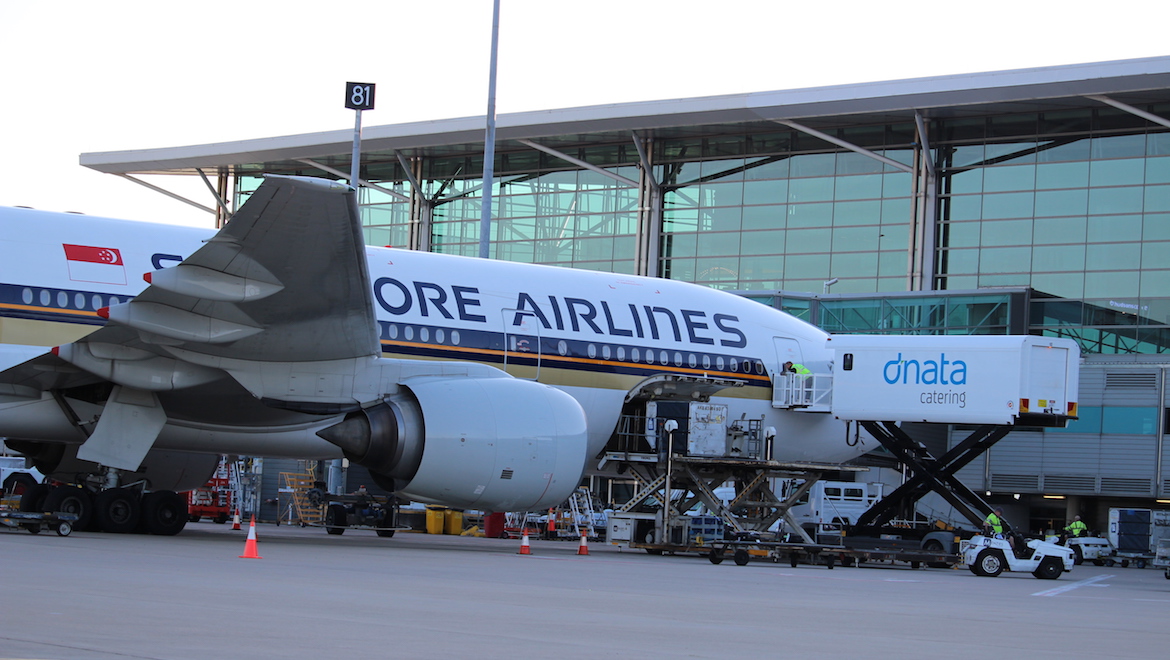
Qantas chief executive Alan Joyce says the airline group’s strong Asian network and high-calibre partners in the region leave it in a strong position to compete against anything the recently announced Virgin Australia/HNA Group tie-up comes up with.
Virgin Australia has applied for an allocation of capacity to serve Beijing and Hong Kong with its own aircraft as part of a newly-announced alliance with China’s HNA Group.
Speaking on the sidelines of the International Air Transport Association (IATA) annual general meeting in Dublin on Thursday, Joyce talked up Qantas’s strong position on not just China but the rest of Asia.
Further, the Qantas chief executive said his airline group had been in this position before, when Virgin forged alliances with the likes of Etihad Airways, Singapore Airlines and Delta Air Lines to boost its own international network.
And in each case Qantas has been able to maintain its leading position in those markets.
“We’ve seen this movie before,” Joyce said.
“People have talked about the pressure that our European network was going to be under with one of the alliance partners our competition had, talked about the North American operation being pressured with the next alliance partner.”
“That keeps on happening and growing but if you are where Qantas is, with the transformation that the guys have done in international, the cost base being as effective as it has been, with the network and partners that we have we’ve got a great international business, we are very comfortable with it.”
“I would rather be in our position than our competitor’s position.”
Currently, Qantas has a joint-venture with China Eastern, which includes codesharing on each other’s Australia-China routes and on their respective domestic services beyond the international gateways, as well as reciprocal frequent flyer benefits. There is also codesharing with China Southern and arrangements with Cathay Pacific through membership of the oneworld alliance.
Shanghai is Qantas mainline’s sole route to mainland China, although Jetstar serves Wuhan from the Gold Coast and the low-cost carrier’s Asian franchises also fly to China.
The Australian carrier also recently co-located its daily Sydney-Shanghai operation to Pudong’s Terminal 1 to improve connection times on China Eastern’s services. Qantas also flies to Hong Kong from Brisbane, Melbourne and Sydney and has recently added extra flights to the territory.
“China Eastern and China Southern are two of the big three in China. I would rather have those guys as partners and the opportunities that they create,” Joyce said.
“You’ve got to play your own game on this. Nothing that has happened in the last few days has changed that.”
“We’ve got good growth plans, we’ve got great opportunities, we will pursue them at the right time.”
Virgin’s application to the International Air Services Commission (IASC), published on Wednesday, sought an allocation of 1,925 seats per week on the China route and an allocation of seven frequencies per week on the Hong Kong route.
“These flights will be operated with Airbus 330-200 aircraft configured with 275 seats from 1 June 2017,” Virgin said in its application.
The request for capacity came a day after Virgin and HNA announced a proposed “strategic commercial alliance”, which would include HNA taking an initial 13 per cent equity stake in the Australian airline.
Currently, Virgin serves China through codeshares with its alliance partner and major shareholder Singapore Airlines (SIA).
The HNA deal comes at a time when Virgin is undertaking a capital review in an effort to shore up a stretched balance sheet and as the market waits for Air New Zealand to announce what it will do with its 26 per cent shareholding in the Australian carrier, having flagged it intended to dispose of its stake.
Asked whether he was concerned about the impact on the domestic market – which generates about 70 per cent of Qantas’s earnings – as Virgin attempted to recapitalise with a fresh influx of funds, Joyce noted Virgin’s major shareholders SIA, Etihad and Air NZ all wanted the Australian carrier to be profitable.
“When it comes to the competition, we want a stable, competitive environment where the competition is acting commercially,” Joyce said.
“What is very clear from what the shareholders have said about our competitor, they all want it to make a return. It’s not making a return for them, they are burning through cash, they need to correct their balance sheet.”
“There’s nothing that anybody is saying that says the competitive dynamic is going to change.”
“The domestic market, as long as I’ve been here, has had two players. I don’t think that is going to change.”












Darren
says:Why don’t Qantas put there on metal on Brisbane – Shanghai route? Going through Hong Kong always a nightmare please AJ put some more of your plans instead of the cheap code share way
Vannus
says:Trying to get through your comment’s poor spelling & grammar, but eventually got the gist!
There’re more pax ex BNE wanting to go to HKG, rather than Shanghai.
Cheaper for QANTAS to use C/S rather than use their own aircraft, which have high utilisation rotation on other, more profitable routes.